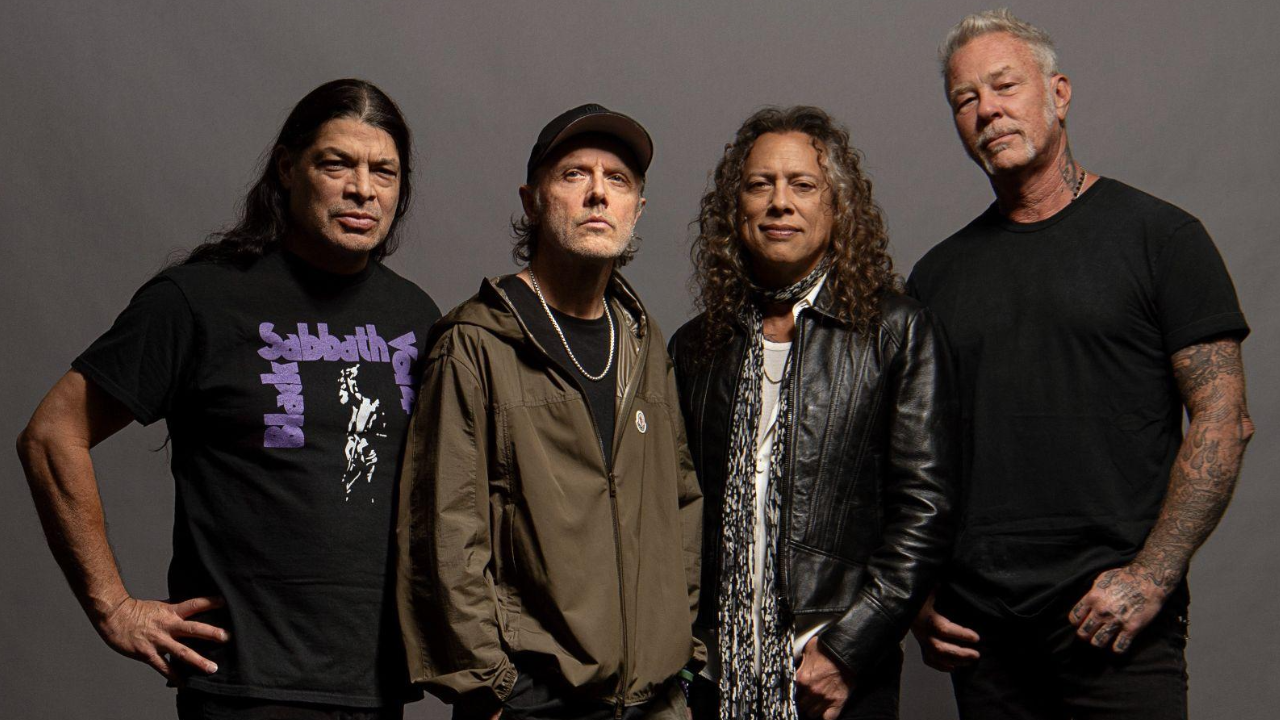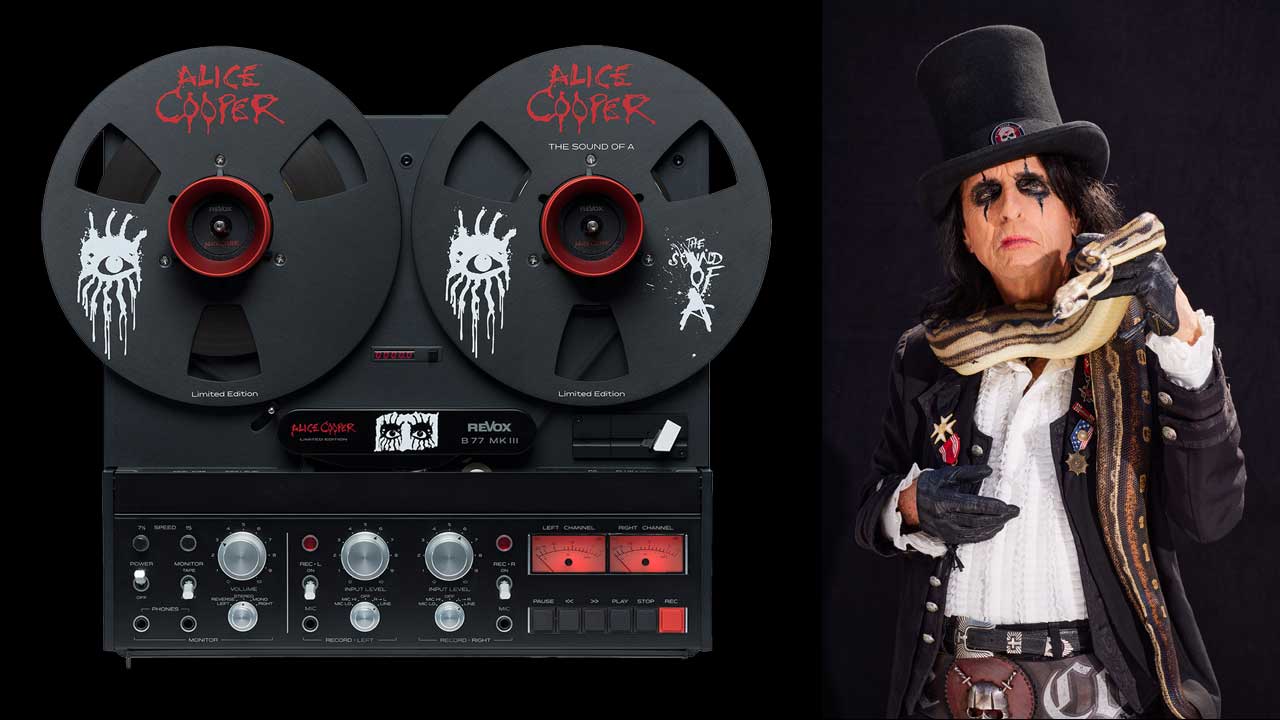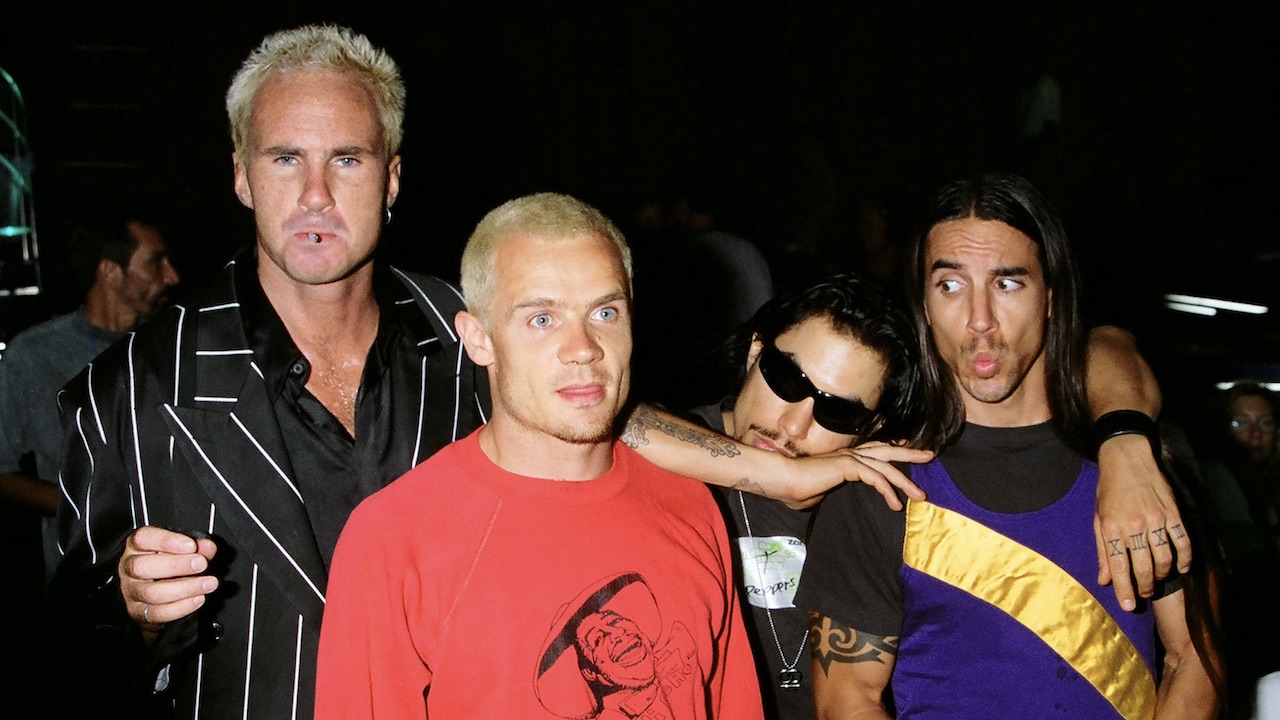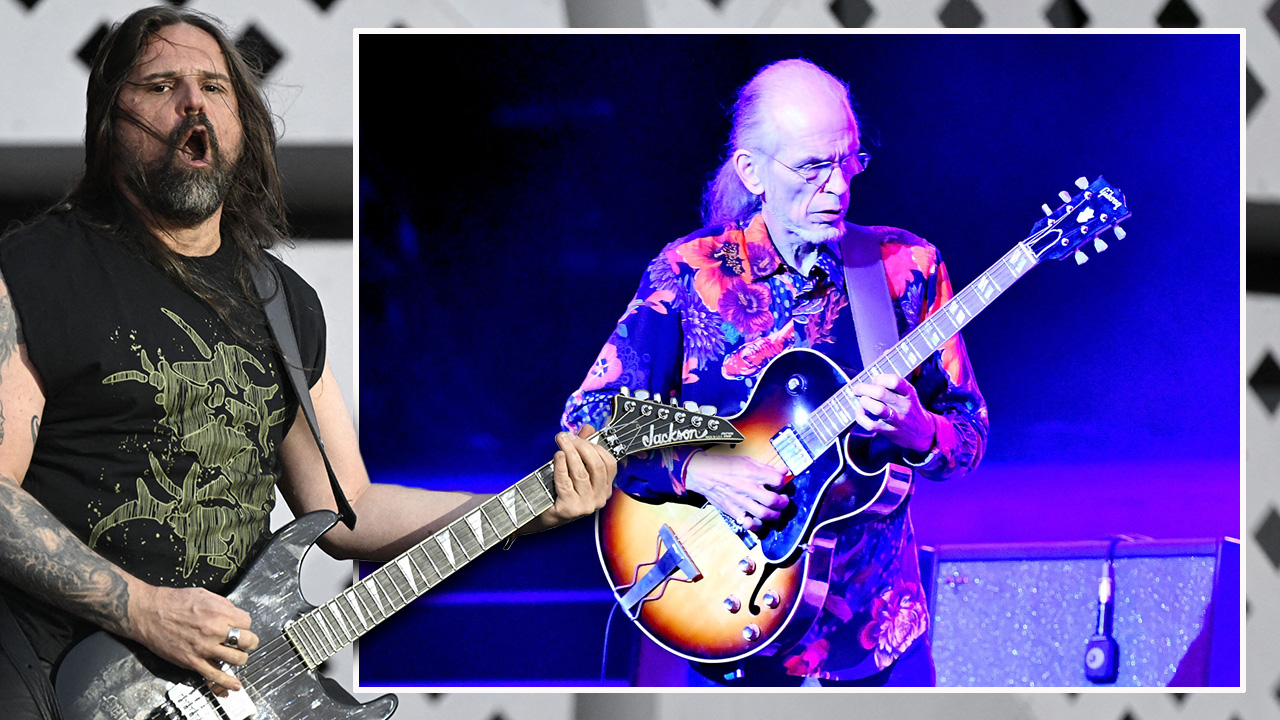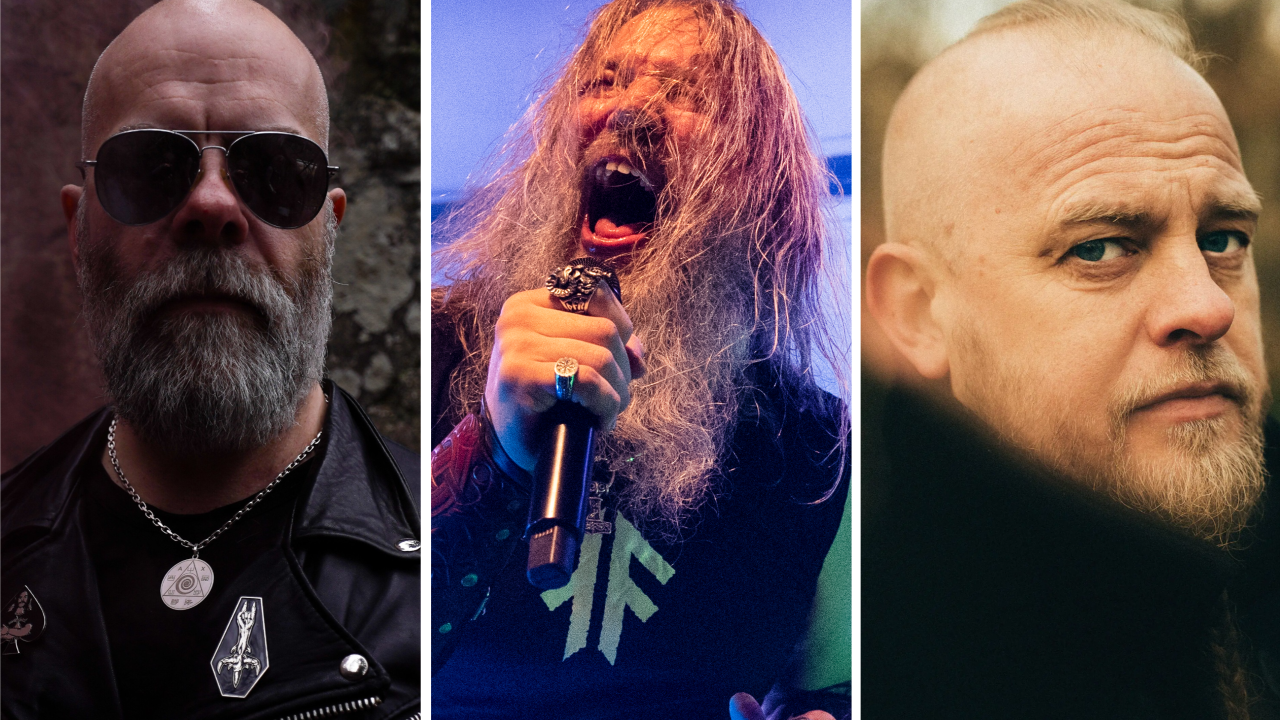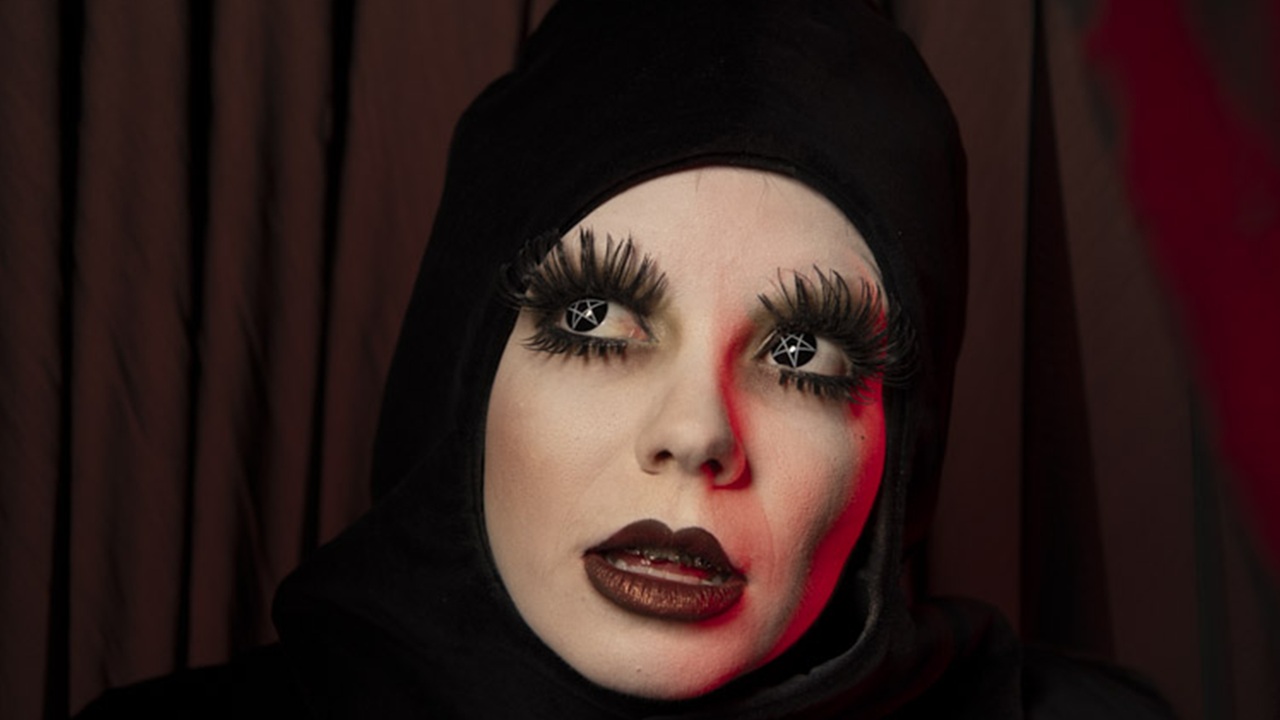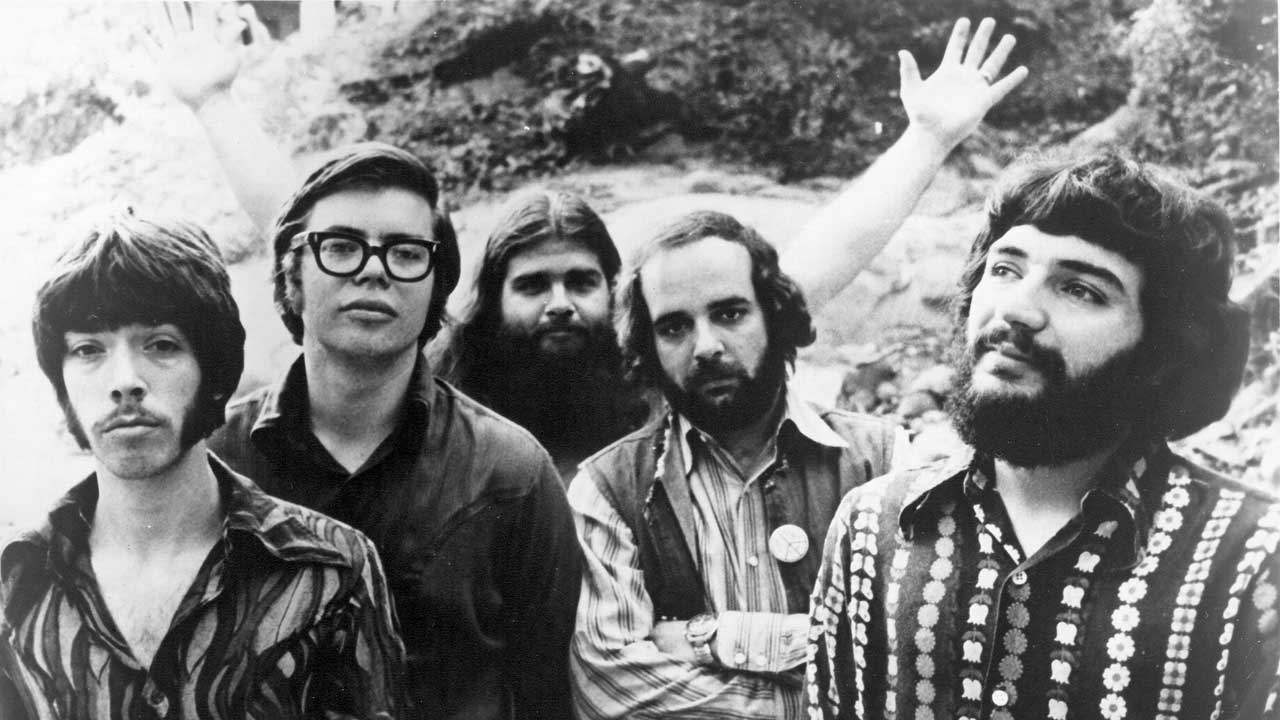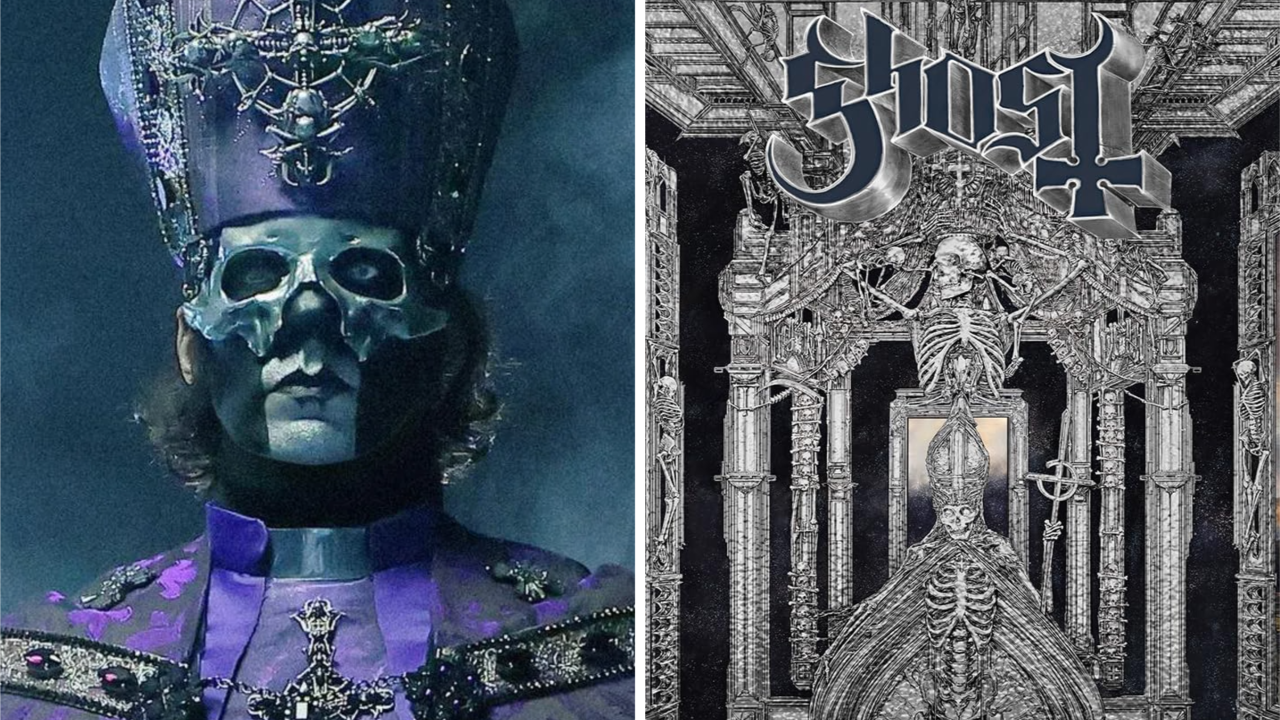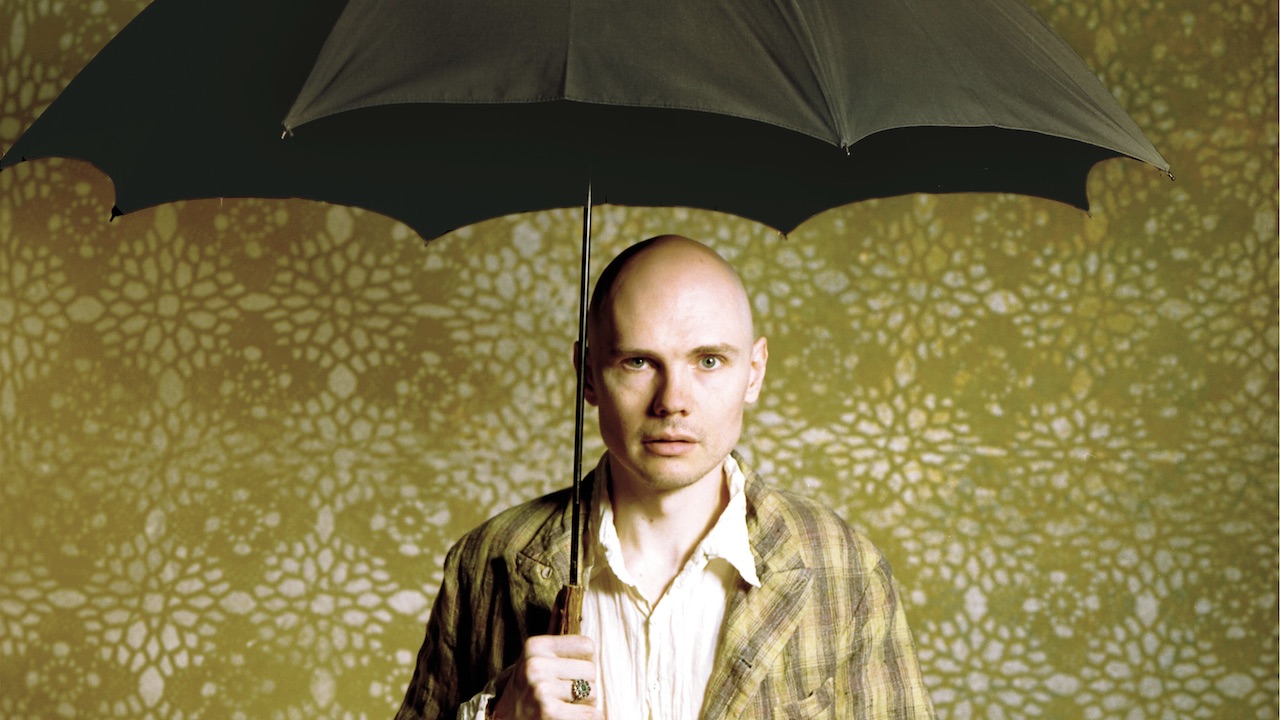"When you hear the click, it’s about to drop,” advises Serena Cherry. Svalbard’s vocalist and guitarist is as cool as a cucumber when she says this, which is impressive given we’re currently ascending more than 100 feet into the air while strapped into a vertical tower ride named Detonator at Thorpe Park, 25 miles west of London.
As we reach the top of the ascent and the entirety of this theme park and a large chunk of the surrounding Surrey countryside spreads out beneath us, Hammer is struck by the view. But we’re also aware that our legs are dangling down into thin air, our stomach feels hollow and our heart is thumping. The ride clanks to a stop. Was this a good idea? Are our shoes going to fall off? What if – CLICK. Oh shiiiiiiit…
This is Serena’s idea of heaven. While some people de-stress from the rigours of life with yoga, sourdoughmaking or simply kicking up their feet and binge-watching TV until they pass out, she loves few things more than being thrown around enormous steel or wooden structures with only a safety bar between her and the air above and/or the ground below.
Svalbard have recently been out on tour supporting Cult Of Luna and Russian Circles, and playing a run of festivals from Hellfest to ArcTanGent in the build-up to The Weight Of The Mask, their blackgaze-glazed post-hardcore wormhole of a fourth album. But Serena is also fresh off of a tour of her own.
She’s home after an impulse weekend road trip to France and Belgium to visit theme parks. We’ve asked Serena to spend the day with us at Thorpe Park, partly because it seems like fun but also to explore a passion that, to an outsider, might seem pretty unusual if not downright terrifying. But as we work our way around the park, it’s evident that there are deeper and more personal reasons to her love of rollercoasters beyond just the thrill of it all.
Stepping into the bubble of Thorpe Park, it quickly becomes clear that Serena feels at home here. She enthuses about her favourite rides and offers a dismissive eyeroll when walking past her least favourite. There’s no need for a map of the park – she’s been here so many times she could lead us around blindfolded.
“Sometimes I’ll just swing by after work,” she explains as we join the queue for the Stealth rollercoaster. It’s the fastest coaster in the UK, and it’s also Serena’s favourite on her home turf. “I’ll shut my laptop, drive down and do a circuit of Detonator and Stealth on a loop,” she says.
On record and onstage, Serena is a magnetic presence. Yet away from Svalbard’s raging noise and shifting musical dynamics, an air of calm introspection surrounds her. She admits she’s happiest when left to her own devices and talks enthusiastically about her multiple interests, including gaming and the intricacies of Formula 1 racing. But it’s her dedication to riding the world’s greatest rollercoasters that truly shines through.
The fascination started when she was seven or eight, on a visit to Alton Towers. It was the fearsome Nemesis ride, with its alien structure, clouds of smoke and “rivers of blood”, which triggered something in her mind. “It was like I’d stepped into another world,” she says.
Though she’d have to wait a few years until she was tall enough to ride Nemesis, the sheer spectacle was enough to spark a lifelong enthusiasm. Today she’s ridden more than 750 different coasters around the world and, as she points out, when you get into those kinds of numbers you become somewhat of a connoisseur. “If you’ve listened to thousands of bands, you become more discerning,” she explains. “It’s the same with rollercoasters.”
While Serena has ridden all the rollercoasters at Thorpe Park multiple times, she’s drawn to Detonator and Stealth in particular. The pair serve up the strongest bursts of g-force in the park – that’s the pressure that whips your head back against the headrest, the acceleration that leaves you dizzy. It’s one of Serena’s favourite physical sensations.
“You can’t argue with g-force,” she notes with a laugh as we click ourselves into the seats on Stealth. A couple of nerve-racking minutes later and we’re done. While Hammer is still reeling from being thrown around and woozily trying to remember our own name, Serena is already ready to head off to the next coaster. “I’m addicted to the adrenaline,” she says as we walk. “I don’t drink. I don’t smoke. I don’t take drugs. It’s the adrenaline for me.”
That adrenaline hunt has taken Serena all around the world, from Poland to America to Japan. She’s tried to tie visits to theme parks in with Svalbard’s touring schedule, though it’s not always practical. She has occasionally persuaded her bandmates to accompany her, though they don’t share quite the same level of enthusiasm.
“Once we got to a park and Mark [Lilley, drums] rode one ’coaster then went straight back to the van,” she laughs. Her favourite rollercoaster is, as she puts it, “one that essentially tries to kill you”. The ’coaster in question is Intimidator 305 at Kings Dominion, Virginia, a 305-feet tall structure that dishes out some of the highest g-force that humans can experience. “You lose your vision when you’re on it, you come off and you can’t feel your legs,” she says. “It’s a very intense ride. But that’s why I like it.”

More than once, people have told Serena that “rollercoasters are just for kids”. It seems to be something she’s taken to heart. Unlike her outspoken and assured public persona, which sees her righteously addressing important subjects such as sexual assault, revenge porn and the rise of right wing politics, today she muffles herself constantly.
“Let me know if I’m being too technical,” she says more than once. Sometimes you can sense the excitement rising in her voice as she gets lost in talking about her love of rollercoasters, only for her to catch herself and dial it back. “I tend to cover up how much I like rollercoasters all the time,” she says. “People aren’t afraid to say just how much they don’t get it.”
Like any group of people with a shared interest, rollercoaster enthusiasts gravitate towards each other. There are several groups and online forums, including the Roller Coaster Club Of Great Britain, ThorpeParkMania, TowersTimes and CoasterForce.
From her childhood to her early 20s, Serena says she struggled to connect with people, but being part of this bigger community has helped her emerge from her shell, making lifelong connections in the process, including her current housemate and best friend.
“Before I joined CoasterForce in 2010, I was super-shy,” she says. “I just didn’t really know how to make friends. But then I met people who could talk about rollercoasters in the same way I could. It was a safe space.”
Serena says she’s at her most confident onstage and on a coaster. “I could never go to a pub and strike up a conversation with someone, but something about going up and performing onstage allows me to be confident, because there’s a barrier of protection there.”
By contrast, being strapped into a rollercoaster involves an element of true surrender. “When you perform live, all the responsibility lies on you, but on a ride I find the loss of control very liberating,” she says. Despite her wariness at how her love of rollercoasters will be perceived, and her protectiveness towards the wider community, there are many moments when the mask slips and the passion is obvious.
Sitting beside her as a ride slows to a stop, hearing her laugh, pigtails askew, reciting along with the recorded voiceovers she’s heard countless times before… it’s a world away from the figure who roars out lacerating metal anthems like Open Wound or Click Bait with Svalbard. The difference between the Serena Cherry the public sees and the Serena Cherry they don’t is addressed on The Weight Of The Mask via tracks such as Faking It and To Wilt Beneath The Weight.
“Sometimes the gap between who I’m presenting and who I am inside feels like it’s getting wider and wider,” says Serena. “Sometimes I feel like I’m disconnecting from myself. It becomes quite existential.”
From Defiance’s promise to fight against depression to How To Swim Down’s heart-wrenching exploration of unrequited love, The Weight Of The Mask is more inwardly focused than any previous Svalbard album.
“The album explores depression, and how you feel like you have to put on a brave face while all this is going on,” she says. “We’ve got so much better when talking about mental illness, but there’s still that immense pressure to perform.”
Her lyrics on The Weight Of The Mask are direct and revealing, consciously avoiding ambiguity. “It’s like reading my diary,” she says. “People always ask what Svalbard want to achieve, what the goal is. For me, it’s to connect with people. I want our lyrics to be immediately understood, and to make people feel less alone. Writing is like having a dark thought, pulling it out, and transforming it into a seed. When the fans listen, they plant it, and I watch it grow into something else. And it’s a very transformative, healing process."
We’re back on our tour of Thorpe Park’s rollercoasters. Next up is a twisted steel construct called The Swarm. “I interviewed You Me At Six up there once,” Serena says, pointing at the first peak, and referencing the Surrey quintet who wrote the soundtrack to the ride. While Serena doesn’t get scared about going on ’coasters, she admits that climbing one and standing, exposed to the elements, at the top was another matter entirely.
“It was a whole new experience. It’s the difference between being in a plane and being strapped to the top of it,” she laughs.
There is a direct connection between The Weight Of The Mask and Thorpe Park, she reveals. The song Pillar In The Sand is a homage to the park’s Halloween-centred Fright Nights, in which it stays open after dark, filled with scary mazes and actors in horror get-ups.
“The song is about something that outlasts everything else - when something has the same magical feeling every time you come back to it,” she says. “That’s Fright Nights at Thorpe Park for me. It’s a pillar in the sand where everything else feels transient in my life. It feels like coming home.”
In 2019, Serena got the opportunity to compose the music for the Fright Night maze Creek Freak Massacre. It’s something she says is her proudest achievement. “Svalbard is always me and my own emotions pouring out, and I’d never had to represent someone else’s story musically before,” she says. “There’s something interesting about having your music play in a public space where people haven’t come there specifically to listen to it, but they’re still affected by it emotionally. It’s an amazing thing to watch. It feels like your art is a part of something bigger. It was really creatively fulfilling.”
She knows that not everyone will understand her passion for rollercoasters, but points out that metal fans, especially, may relate better than many. “The Venn diagram for rollercoasters and metal definitely overlaps,” she says. “They’re both extreme, and they can be intimidating to an outsider.”
But for her, there’s also a much more personal element to it. “When I’m riding a rollercoaster, it’s the one time in my life where I’m not depressed or anxious,” she says. “Of course, I’ve had times at theme parks where the depression has hit me super-hard and I’ve hid in the toilets crying - that’s just the reality of depression. But when I’m on my favourite rollercoaster, it’s an almost guaranteed emotional pick-me-up.”
Having spent the best part of a day riding the rollercoasters at Thorpe Park, the joy that being around and on these crazy, hair-raising, death-defying rides gives her is evident. “There’s nothing else in this world like rollercoasters,” she smiles. “It’s such an all-encompassing experience.”
The Weight Of The Mask is out now via Nuclear Blast


